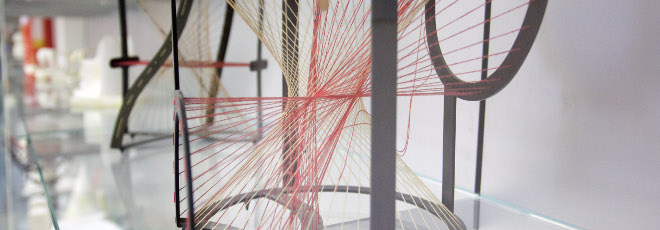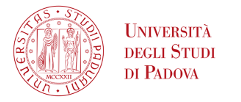
“Mini workshop on derived categories and mirror symmetry”
Wednesday, November 23, 2022 - Room 2AB40
Programme
10:00 – 11:00: Jacopo Stoppa
11:00 – 11:30: break
11:30 – 12:30: Sebastian Opper
Lunch break
14:00 – 15:00: Anna Barbieri
15:00 – 15:15: break
15:15 – 16:15: Andreas Hochenegger
Titles and abstracts
Jacopo Stoppa (SISSA, Trieste)
“Mirror symmetry, K-stability, and complexified polarisations”
Abstract
In general, mirror symmetry requires the consideration of arbitrary complexified polarisations (i.e. complexified Kähler classes), since these correspond to the possible complex structures on the mirror. In the Fano case, this motivates us to study the problem of extending the notion of K-stability to complexified polarisations, and to ask how this complexified K-stability notion interacts with mirror maps. I will offer an introduction to these questions, focusing on the case of del Pezzo surfaces.
This is part of joint work with Carlo Scarpa (Université du Québec à Montréal).
Sebastian Opper (Prague)
“Categories associated to punctured surfaces and surface twist group actions on triangulated categorie”
Abstract
The talk is about a new class of $A_\infty$-categories which can be associated to punctured surfaces with suitable vector fields, or more general, line fields. They can be thought of as orbits of trivial extensions of partially wrapped Fukaya categories of surfaces in the sense of Haiden, Katzarkov and Kontsevich. For certain line fields they also include the class of Brauer graph algebras, which previously appeared in modular representation theory of finite groups. I aim to talk about their (currently conjectural) connection to surface braid group actions on triangulated categories and their interpretation as Fukaya categories.
Parts of the talk are based on ongoing work with Wassilij Gnedin and Alexandra Zvonareva.
Anna Barbieri (Padova)
“Spaces of Bridgeland stability conditions and weighted marked surfaces”
Abstract
Bridgeland stability conditions, introduced by T.Bridgeland in 2007, are defined for a triangulated category, and form a complex manifold that encodes some data of the underlying category. In some known examples, the stability manifold of a category provides a bridge with other moduli problems, for instance as in the case of Ginzburg categories due to T. Bridgeland and I. Smith. I will give an introduction to this topic and talk about a class of categories whose stability manifold is isomorphic to a moduli space of quadratic differentials on a Riemann surface.
The talk is about joint work with M. Moeller, Y. Qiu, J. So.
Andreas Hochenegger (Milano Politecnico)
“Relations among P-twists”
Abstract
On a K3 surface, rational curves and line bundles give rise to interesting autoequivalences of its derived category, so-called spherical twists. It was shown by P. Seidel and R. Thomas, that these spherical twists are mirror-dual to Dehn twists in symplectic geometry. Moreover, they showed that given a chain of rational curves, the associated spherical twists satisfy braid relations. Generalising from K3 surfaces to hyperkähler varieties, D. Huybrechts and R. Thomas showed that the corresponding generalisation of the spherical twists are $P^n$-twists. In this talk, I will introduce these autoequivalences, and speak about the possible relations among them.
This talk is about joint work with Andreas Krug.




